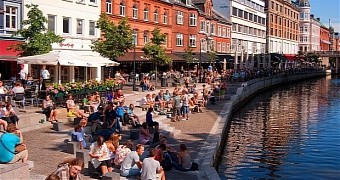Aarhus is Denmark’s second largest city, and the administration is preparing for the use of open IT standards in an effort to rid itself of the grip of proprietary software.
There is a movement going on across the European Union, and authorities are starting to notice that open source software is a real option and that it needs to be considered for the future, especially since it can also bring substantially lower costs.
Cities in France, Italy, or Germany have already migrated to open source solutions, and there are a couple of governments, like the one in the UK, which are also considering making this move.
The authorities in Aarhus are not naming any names, but they are talking about proprietary software and the current IT vendor lock-in. It doesn’t leave a lot of wiggle room for speculations, and we all know what they are talking about.
The bigger picture is that they intend to move to open source software, and they are already educating the people who are going to use that software.
Open source is expanding
It’s clear that open source solutions are becoming a lot more popular, and it’s not really a surprise that cities in Denmark are already making this move. In fact, the migration to open source software for Denmark’s Aarhus started in 2014.
“Since September, Tække, project manager at the city’s Innovation, Technology and Creativity department, is overseeing Aarhus’ Open Source Action Plan. A main task is explaining the value of open source to the city’s 30,000 staff members. The city is also working on a guide on how to acquire open source software and is organising workshops and meetings,” reads the report on joinup.ec.europa.eu.
In fact, the city of Aarhus has bigger plans than just the adoption of open source. The teams there want to build their own tools and open source applications that will fit their exact needs. The city of Munich has done a similar thing by building their own Linux OS.
There is no timeline for the transition, but it’s happening and it’s only a matter of when, not if.

 14 DAY TRIAL //
14 DAY TRIAL //